“Hatred and rage” threatens Gaza truce
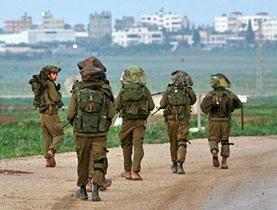
Monday's Swiss papers pick over the pieces after Israel and Hamas each declared a unilateral truce this weekend after three-weeks of fighting.
The papers generally agree that the three week long Israeli offensive against Gaza, which has left over a thousand people dead, several thousand injured and destroyed large numbers of buildings, has produced only losers and they are sceptical about Israel’s claim to have achieved its aims.
The German-language Neue Zürcher Zeitung points out that the salvo fired at the town of Sderot after Israel declared its unilateral ceasefire demonstrates that “the Israeli army did not manage to put an end to the immediate reason for the fighting”.
It warns that Israeli Prime Minister Ehud Olmert’s claims may well turn out to be “empty hopes”.
Nevertheless, on the whole the papers agree that at least in the short term Hamas has taken a knock.
“Hamas certainly suffered a considerable set back both militarily and organisationally,” Middle East expert Erich Gysling tells the Zurich tabloid Blick.
“It has not been smashed, as many Israelis hoped, but its fighting capacity has clearly been dented,” says the Berner Zeitung of Bern.
Even so, Zurich’s Tages-Anzeiger points out that Hamas has not been beaten. “The Islamists are still there, and that is their ‘victory’.”
“An organisation like Hamas cannot be destroyed by such a war. New forces will spring up again,” says Gysling.
The French-language Tribune de Genève, in an eye-witness report from Gaza, quotes one of its citizens. “This is not the end. It’s only the beginning. No one thinks this truce is going to last.”
Israel damaged
Several papers point out the damage that the fighting has done to Israel.
“As usual in its military campaigns, the Israelis have used their superior weaponry without regard for international law,” the NZZ points out. “That has damaged the reputation of Israel throughout the world, and embarrassed Israel’s friends.”
And it adds that the consequent suffering of the civilian population of Gaza has been a major factor in the fighting and could well play into Hamas’ hands.
“The movement of solidarity in the Islamic world with the Palestinians in Gaza is grist to the mill of Hamas and its allies in the region,” says the NZZ.
Inside Gaza it is perhaps a different matter, the Berner Zeitung believes.
“Whether the victims of the war will absolve Hamas from any responsibility for the tragic events remains an open question,” it says.
As for the fall-out on the Arab and Islamic world, several papers express their concern.
The NZZ says that Olmert’s assertions that the fight against the Islamists in Gaza was a service to all moderate forces could backfire against Palestinian President Mahmud Abbas, Egyptian President Hosni Mubarak and King Abdallah of Saudi Arabia, who may now be suspected of “secretly supporting Israel’s actions and approving its bloody consequences”.
“The Tehran-Damascus-Hizbullah-Hamas axis has emerged stronger from this war,” it adds.
Global impact
The conflict has wider implications on the world stage too. Several papers attribute the Israeli decision to declare a unilateral ceasefire to the imminent inauguration of Barack Obama as United States president.
“The Israelis don’t want to put a strain on relations with the new US president right away,” says Blick.
The TagesAnzeiger, meanwhile, has harsh words for the western leaders who have gone to Egypt in an attempt to mediate.
“They are unilaterally following Israel’s policy and ignoring Hamas,” the paper says. “What is needed is effective mediation, not complacent summit speechifying which has nothing to do with reality.”
The editorials offer little hope for the future.
The situation in the area has simply worsened after three weeks of fighting, says the NZZ. “The inhabitants of southern Israel cannot be certain that no more rockets will be fired at them and the inhabitants of Gaza have no guarantee that the Israeli siege is over.”
The TagesAnzeiger calls for a “minimum of justice”, which implies a lifting of the Israeli-imposed blockade on the Gaza Strip. It fears that the measures currently under discussion to prevent weapon smuggling will not undermine support for the Islamists.
“Yet that should be the basic aim, not only for Israel, but also for the Palestinians, who have historically been secular-minded,” it says.
“All parties need to want to seek soberly for a solution, and compromise on their self-interest,” says Gysing in Blick. “But hatred and rage dominate. And that means a durable solution is not in sight.”
swissinfo, Julia Slater
December 27: Israel launches aerial bombardment on Gaza.
January 3: Israeli ground troups enter Gaza Strip.
January 8: UN calls for immediate ceasefire, leading to Israeli withdrawal.
January 16: Israeli-US agreement on combating Hamas weapons smuggling.
January 17: Israeli proclaims a unilateral ceasefire.
January 18: Hamas announces its own ceasefire, conditional on an Israeli withdrawal within one week. Israeli forces start withdrawing.
More than 1300 Palestinians are reported to have been killed in the fighting. Around half of them are thought to be civilians.
Israel says it lost a total of 13 killed.
The Gaza Strip is a piece of land on the eastern Mediterranean coast about 41 kilometers long and 12 kilometres wide at its widest point, a total of 360 square kilometres.
It is bounded by Israel to the north and east, and Egypt in the south.
It has a population of about 1.5 million, giving it a population density of over 4,000 per square kilometre.
The bulk of the inhabitants are refugees, or descendants of refugees, forced to leave their homes in what is now Israel when the State of Israel was established in 1948.
In 1967 Israel occupied the territory and created 21 Jewish settlements there.
After the Oslo accords of 1993, the Palestinian Authority took over the administration.
Israel withdrew completely in 2005, but retained control of the border points.
In Palestinian legislative elections in 2006, Hamas won a clear victory.
After a struggle with the Fatah party of Palestinian president Mahmud Abbas, Hamas took control of the Gaza Strip in June 2007.
Israel has kept the territory under a tight blockade since June 2007, allowing through only the minimum of supplies.
Palestinian militants meanwhile fired rockets into southern Israel, in particular at the town of Sderot close to the border.
A six-month ceasefire agreed between the two sides in June 2008 was not renewed when it ended in December.
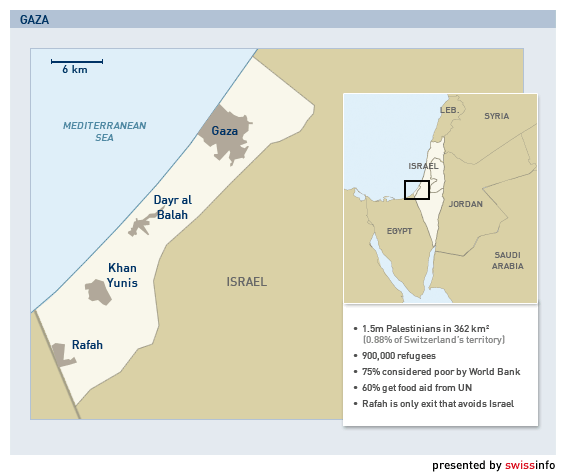

In compliance with the JTI standards
More: SWI swissinfo.ch certified by the Journalism Trust Initiative
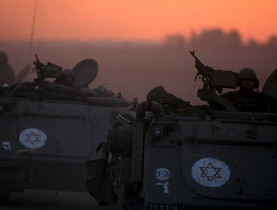
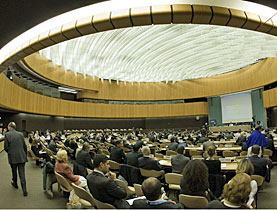
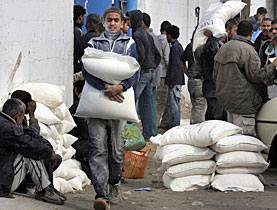
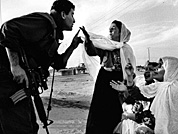
You can find an overview of ongoing debates with our journalists here. Please join us!
If you want to start a conversation about a topic raised in this article or want to report factual errors, email us at english@swissinfo.ch.